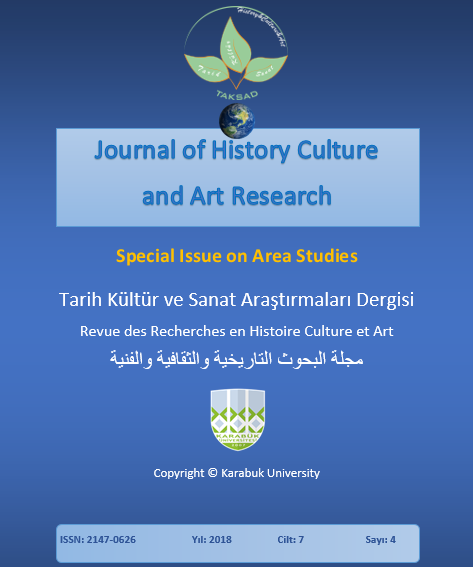Gender-Marked Nicknames Defining a Male Person in English and Russian
DOI:
https://doi.org/10.7596/taksad.v7i4.1819Keywords:
Nickname, Linguistic culture, Russian, English, Classification.Abstract
The object of our research is a group of nicknames –phraseological units that are semantically oriented to a man in Russian and English languages, which includes the nicknames of famous personalities and celebrities, namely politicians, heads of state, athletes, writers and publicists, artists, showmen, oligarchs, as well as historical personalities. Nicknames are active in both social and professional jargons. The nicknames of teachers can be heard only in the speech of schoolchildren of a particular school. The nicknames of politicians, oligarchs sound in the speech of a certain rather closed corporate environment. Despite this, this language platform has become widely used both in the pages of the periodical press and on numerous Internet sites. Firstly, the article presents a theoretical review of the literature. Then authors offer their own classification of nicknames, which includes 12 nominations. On the basis of which a comparative analysis of these nicknames is carried out.
References
Abd-el-Jawad, H. (1986). A Linguistic and Sociocultural Study of Personal Names in Jordan. Anthropological Linguistics, 28(1), 80-94.
Afanasev, A. S. & Breeva, T. N. (2016). Gender worldview in modern Russian literature. Turkish Online journal of Design Art and Communication, 6, Special Issue, 3043-3048. ISSN: 2146-5193
Auhadeeva, L. A.; Yarmakeev, I. E. & Aukhadeev, A. E. (2015). Gender competence of the modern teacher International Education Studies, 8(2), 32-37. ISSN 1913-9020. DOI: 10.5539/ies.v8n2p32
Chayko, T. G. (1971). About the principles of the nomination in national nicknames. ‘’On material of dialects of the Kirov region’’. Top Onomastics Questions. Issue 5. Sverdlovsk.
Delahunty, A. (2003). Oxford Dictionary of Nicknames. Oxford University Press.
Florovskaya, V. A. (1971). Nicknames in the Russian dialects of Kuban. Ethnography of Names.
KwesiBisilki, A. (2018). A study of personal names among the Bikpakpaam (the Konkomba) of Ghana: The linguistics, typology and paradigm shifts. Language Sciences, 66, March, 15-27.
Shevchenko, A. R. & Nesmelova, O. O. (2015). Gender identity in British postcolonial novel: Hanif Kureishi's ‘’The Buddha of Suburbia.’’ Social Sciences, 10(4), 421-425.
Tarasova, F. Kh. & Kormiltseva, A. L. (2016). The Gender Marked Phraseological Units Coding Female Intelligence in the Russian and English Languages IEJME-Mathematics Education – IEJME Article, November.
Volkova, N. A. (2007). About the Russian nicknames: ‘’As preface.’’ In H. Walther & V.M. Mokiyenko (eds.), Dictionary of the Russian Nicknames. Moscow.
Walther, H. & Mokiyenko, V. M. (eds.) (2007). Dictionary of the Russian Nicknames. Moscow.
Yartsev, V. N. (eds.) (1998). Big Encyclopedic Linguistics Dictionary. Big Russian Encyclopedia. Moscow.
Downloads
Published
How to Cite
Issue
Section
License
All papers licensed under Creative Commons 4.0 CC-BY.- Share — copy and redistribute the material in any medium or format
- Adapt — remix, transform, and build upon the material for any purpose, even commercially.
Under the following terms:
Attribution — You must give appropriate credit, provide a link to the license, and indicate if changes were made. You may do so in any reasonable manner, but not in any way that suggests the licensor endorses you or your use.
- No additional restrictions — You may not apply legal terms or technological measures that legally restrict others from doing anything the license permits.







